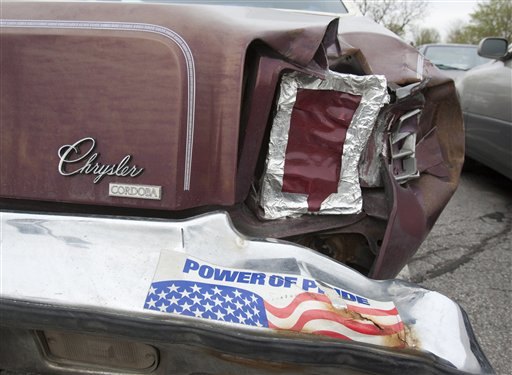More to Love About the Chrysler Asset Sale
The NYT Wheels blog reports that Judge Arthur Gonzalez has overruled pleas by consumer advocates and law professors by granting Chrysler’s request to exempt “New Chrysler” from any liability arising from “Old Chrysler.” Public Citizen, the Center for Auto Safety and Consumers for Auto Reliability and Safety have formally objected to the move on the grounds that current owners of Chrysler vehicles will have no legal recourse if they are injured because of a product defect. A lawyer representing these groups has said they will seek an appeal, the second objection to date to the Chrysler asset sale. According to testimony by Robert Nardelli, the idea of not allowing current owners to sue came up during the discussions between the Treasury and Fiat. Unlike the State of Indiana’s appeal of the Chrysler asset sale, this appeal has the potential to completely change the incentives for Fiat to take over Chrysler. If an appeals judge hears and approves this objection, Fiat could simply walk away.
More by Edward Niedermeyer


































Comments
Join the conversation
What John The Hacker should've been looking if he had a clue was something more along these lines: http://www.bingham.com/Media.aspx?MediaID=5085 Unfortunately, that's not exactly what he's looking for, and thus he will likely fail in his venture without another big helping hand. I was hoping to do a sally struthers parody here for a foundation that aids those deprived of basic legal knowledge, but couldn't find a suitable save the children transcript, so screw it.
Everybody... I must confess I am not a lawyer. This is in my opinion, not a bad thing. At least I have a slightly better chance of getting into heaven than the camel stuck with his ass in a needle eye. But it always helps to listen to a good one speak. Please take the time to read through this interview with the link below. If initially a window pops up, x out to the interview. It makes me a little more clear on the government moves with these bankruptcies. But even IF the deals are all legal, although odd, it all comes down to what RF tried to explain in his TV discussion: Nothing matters IF you are NOT building cars that the public wants. There is NOTHING in the big plan that gives me confidance the NEW GM or the NEW C will present to a buying public anything worth purchasing. Everything invested will be lost without a good desireable car to sell. PLEASE read through... http://www.salon.com/tech/htww/feature/2009/05/23/fun_with_bankruptcy_law/